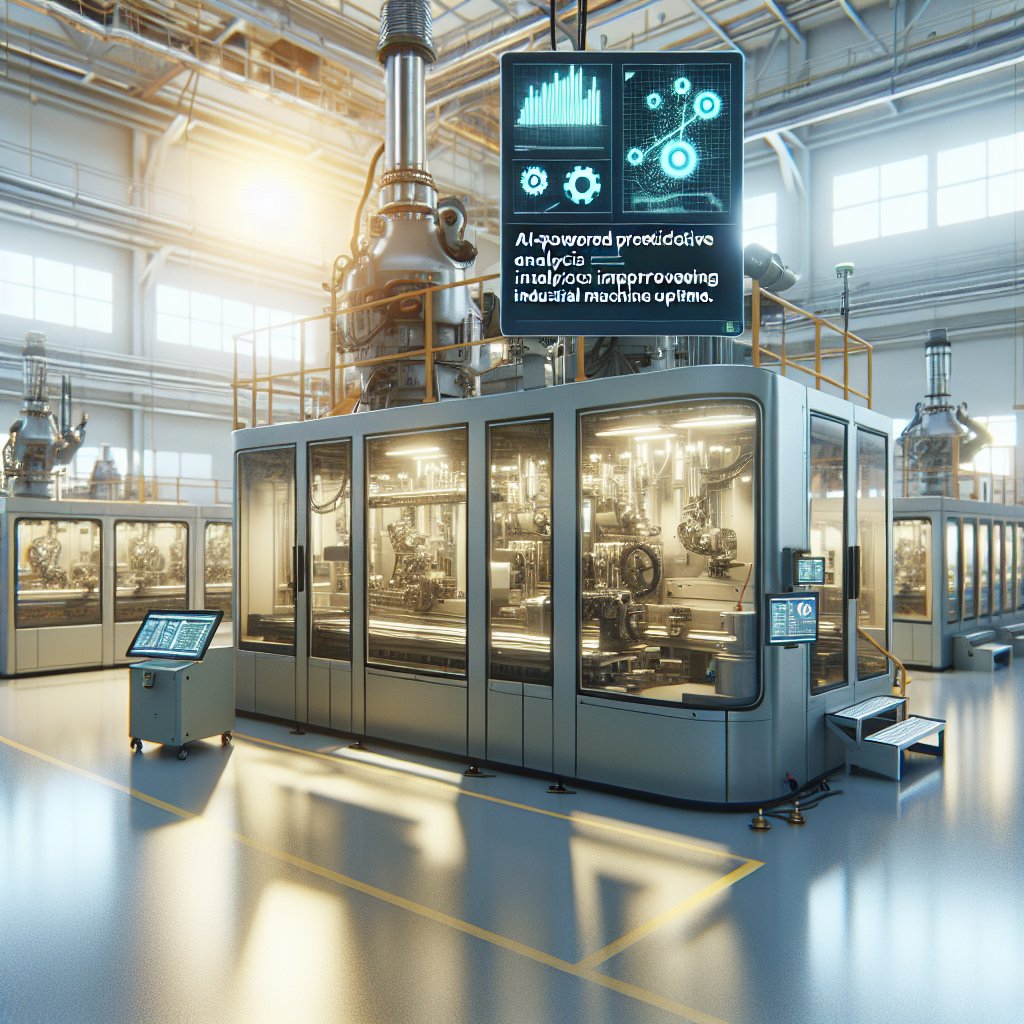
Artificial Intelligence (AI) has revolutionized numerous industries, and its application in predictive analytics is proving to be a game-changer for improving industrial machine uptime. By leveraging AI-powered predictive analytics, companies can anticipate equipment failures before they occur, thereby minimizing downtime and optimizing operational efficiency. This article delves into the transformative impact of AI in predictive maintenance, exploring its benefits, challenges, and future potential.
Understanding AI-Powered Predictive Analytics
Predictive analytics involves using data, statistical algorithms, and machine learning techniques to identify the likelihood of future outcomes based on historical data. In the context of industrial machinery, predictive analytics can forecast equipment failures, allowing for proactive maintenance and reducing unexpected downtimes. AI enhances this process by analyzing vast amounts of data more accurately and efficiently than traditional methods.
AI algorithms can process data from various sources, such as sensors, maintenance logs, and operational records, to identify patterns and anomalies that may indicate potential failures. Machine learning models can then predict when a machine is likely to fail, enabling maintenance teams to address issues before they escalate. This proactive approach not only extends the lifespan of machinery but also optimizes resource allocation and reduces maintenance costs.
Benefits of AI-Powered Predictive Analytics in Industrial Settings
The integration of AI in predictive analytics offers several advantages for industrial operations. One of the most significant benefits is the reduction in unplanned downtime. By predicting equipment failures, companies can schedule maintenance during planned downtimes, minimizing disruptions to production schedules. This leads to increased productivity and efficiency, as machines are kept running smoothly with fewer interruptions.
Another advantage is the optimization of maintenance schedules. Traditional maintenance strategies often rely on fixed schedules or reactive approaches, which can lead to over-maintenance or unexpected breakdowns. AI-powered predictive analytics allows for condition-based maintenance, where interventions are performed only when necessary. This not only reduces maintenance costs but also ensures that machines are operating at peak performance.
Furthermore, AI-driven predictive analytics can enhance safety in industrial environments. By identifying potential failures before they occur, companies can prevent accidents and ensure a safer working environment for employees. This proactive approach to maintenance also helps in complying with safety regulations and standards, reducing the risk of legal liabilities.
Challenges in Implementing AI-Powered Predictive Analytics
Despite its numerous benefits, implementing AI-powered predictive analytics in industrial settings is not without challenges. One of the primary obstacles is the integration of AI systems with existing infrastructure. Many industrial facilities operate with legacy systems that may not be compatible with modern AI technologies. Upgrading or replacing these systems can be costly and time-consuming, posing a barrier to adoption.
Data quality and availability are also critical factors in the success of predictive analytics. AI models require large volumes of high-quality data to make accurate predictions. In some cases, data may be incomplete, inconsistent, or siloed across different departments, making it difficult to obtain a comprehensive view of equipment performance. Companies must invest in data management and integration solutions to overcome these challenges.
Additionally, there is a need for skilled personnel who can develop, implement, and maintain AI systems. The shortage of data scientists and AI experts can hinder the adoption of predictive analytics in industrial settings. Companies must invest in training and development programs to build the necessary expertise within their workforce.
The Future of AI-Powered Predictive Analytics in Industry
As AI technology continues to evolve, its application in predictive analytics is expected to become even more sophisticated and widespread. Advances in machine learning algorithms, data processing capabilities, and sensor technologies will enable more accurate and timely predictions, further enhancing machine uptime and operational efficiency.
One promising development is the integration of AI with the Internet of Things (IoT). IoT devices can collect real-time data from industrial machines, providing a continuous stream of information for AI models to analyze. This real-time monitoring allows for even more precise predictions and faster response times, enabling companies to address potential issues before they impact operations.
Moreover, the adoption of AI-powered predictive analytics is likely to expand beyond traditional industrial sectors. Industries such as healthcare, transportation, and energy are beginning to explore the potential of predictive maintenance to improve the reliability and efficiency of their operations. As AI technology becomes more accessible and affordable, its application in predictive analytics will continue to grow, driving innovation and transformation across various sectors.
In conclusion, AI-powered predictive analytics holds immense potential for improving industrial machine uptime and optimizing operational efficiency. By leveraging AI technologies, companies can anticipate equipment failures, reduce downtime, and enhance safety, ultimately leading to increased productivity and cost savings. While challenges remain, the future of AI in predictive analytics is bright, promising continued advancements and widespread adoption across industries.

